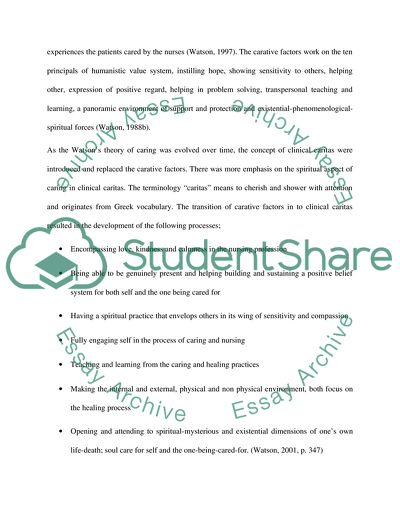Cite this document
(Watson's Theory of Caring Term Paper Example | Topics and Well Written Essays - 1750 words - 1, n.d.)
Watson's Theory of Caring Term Paper Example | Topics and Well Written Essays - 1750 words - 1. Retrieved from https://studentshare.org/psychology/1742566-watsons-theory-of-caring
Watson's Theory of Caring Term Paper Example | Topics and Well Written Essays - 1750 words - 1. Retrieved from https://studentshare.org/psychology/1742566-watsons-theory-of-caring
(Watson'S Theory of Caring Term Paper Example | Topics and Well Written Essays - 1750 Words - 1)
Watson'S Theory of Caring Term Paper Example | Topics and Well Written Essays - 1750 Words - 1. https://studentshare.org/psychology/1742566-watsons-theory-of-caring.
Watson'S Theory of Caring Term Paper Example | Topics and Well Written Essays - 1750 Words - 1. https://studentshare.org/psychology/1742566-watsons-theory-of-caring.
“Watson'S Theory of Caring Term Paper Example | Topics and Well Written Essays - 1750 Words - 1”, n.d. https://studentshare.org/psychology/1742566-watsons-theory-of-caring.


